Jaguar E-Pace vs Nissan Ariya – Performance, range & efficiency compared
Two cars, one duel: Jaguar E-Pace meets Nissan Ariya.
Which one wins in performance, efficiency and value for money? Find out now!
Costs and Efficiency:
When it comes to price and running costs, the biggest differences usually appear. This is often where you see which car fits your budget better in the long run.
Jaguar E-Pace has a somewhat advantage in terms of price – it starts at 32400 £, while the Nissan Ariya costs 37300 £. That’s a price difference of around 4877 £.
As for range, the Nissan Ariya performs clearly better – achieving up to 531 km, about 462 km more than the Jaguar E-Pace.
Engine and Performance:
Power, torque and acceleration say a lot about how a car feels on the road. This is where you see which model delivers more driving dynamics.
When it comes to engine power, the Nissan Ariya has a distinct edge – offering 435 HP compared to 269 HP. That’s roughly 166 HP more horsepower.
In acceleration from 0 to 100 km/h, the Nissan Ariya is significantly quicker – completing the sprint in 5 s, while the Jaguar E-Pace takes 7.30 s. That’s about 2.30 s faster.
In terms of top speed, the Jaguar E-Pace performs barely noticeable better – reaching 211 km/h, while the Nissan Ariya tops out at 200 km/h. The difference is around 11 km/h.
There’s also a difference in torque: Nissan Ariya pulls barely noticeable stronger with 600 Nm compared to 540 Nm. That’s about 60 Nm difference.
Space and Everyday Use:
Beyond pure performance, interior space and usability matter most in daily life. This is where you see which car is more practical and versatile.
Both vehicles offer seating for 5 people.
In curb weight, Jaguar E-Pace is a bit lighter – 1783 kg compared to 1980 kg. The difference is around 197 kg.
In terms of boot space, the Jaguar E-Pace offers minimal more room – 494 L compared to 468 L. That’s a difference of about 26 L.
In maximum load capacity, the Nissan Ariya performs somewhat better – up to 1350 L, which is about 180 L more than the Jaguar E-Pace.
When it comes to payload, Jaguar E-Pace noticeable takes the win – 554 kg compared to 420 kg. That’s a difference of about 134 kg.
Who comes out on top?
Overall, the Nissan Ariya shows itself to be is largely superior and secures the title of DriveDuel Champion.
It convinces with the more balanced overall package and proves to be the more versatile choice for everyday use.

Nissan Ariya
Jaguar E-Pace
The Jaguar E-Pace is a compact SUV that combines the brand's signature luxury with a dynamic driving experience. Its sleek design features graceful lines and an assertive stance, making it a standout on any road. Inside, the E-Pace boasts a meticulously crafted interior with high-quality materials and advanced technology, providing both comfort and connectivity for drivers and passengers alike.
details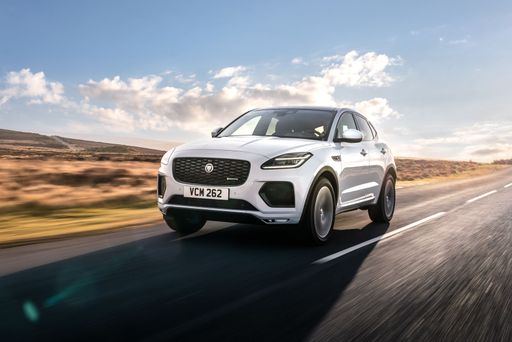 @ media.jaguar.com
@ media.jaguar.com
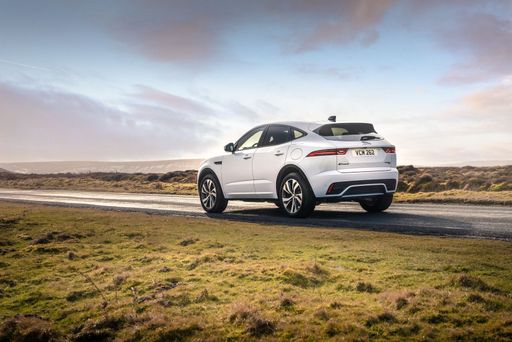 @ media.jaguar.com
@ media.jaguar.com
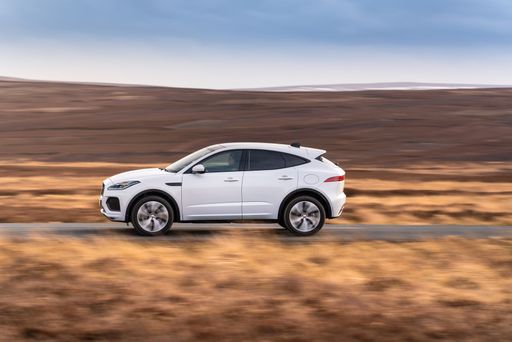 @ media.jaguar.com
@ media.jaguar.com
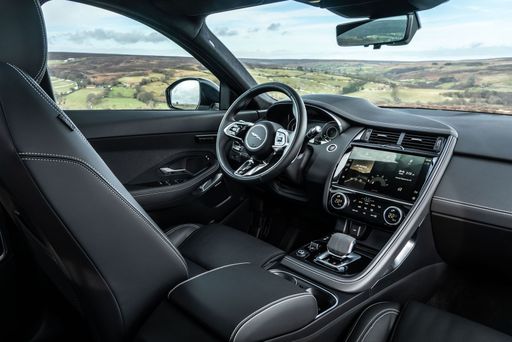 @ media.jaguar.com
@ media.jaguar.com
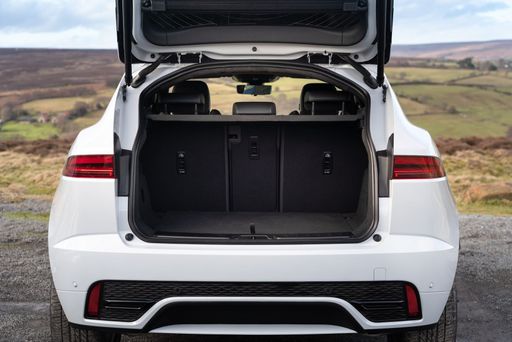 @ media.jaguar.com
@ media.jaguar.com
Nissan Ariya
The Nissan Ariya elevates the electric vehicle segment with its sleek design and advanced technology, providing a modern driving experience. Seamlessly blending comfort with performance, the Ariya offers an inviting and spacious interior that caters to both driver and passengers. Its innovative features make it a strong contender in the growing market for eco-friendly yet stylish automobiles.
details @ Nissan
@ Nissan
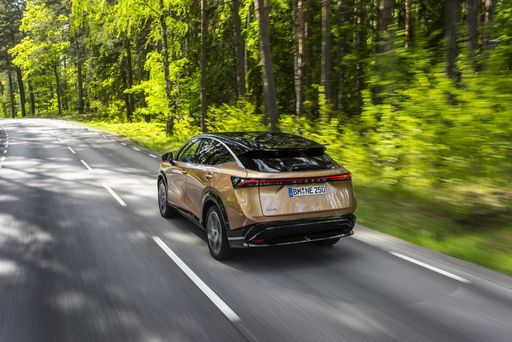 @ Nissan
@ Nissan
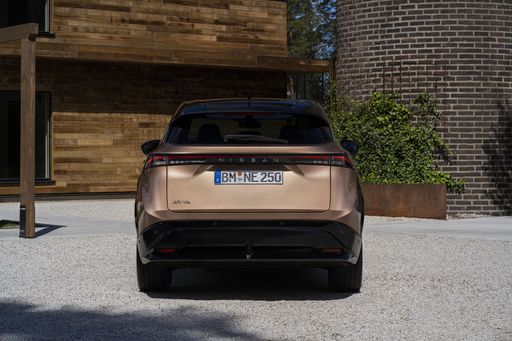 @ Nissan
@ Nissan
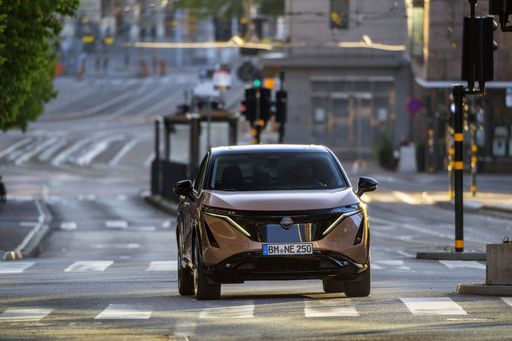 @ Nissan
@ Nissan
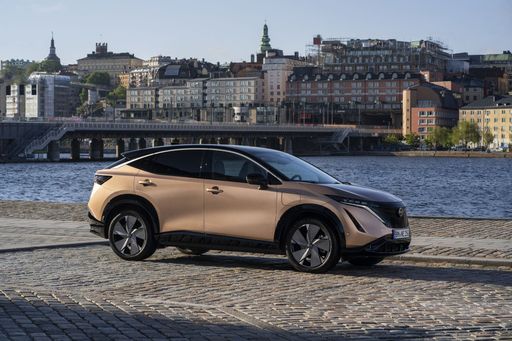 @ Nissan
@ Nissan
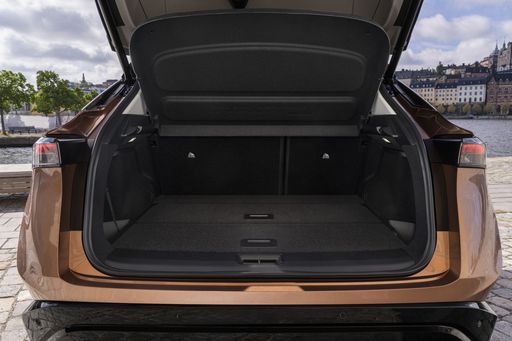 @ Nissan
@ Nissan
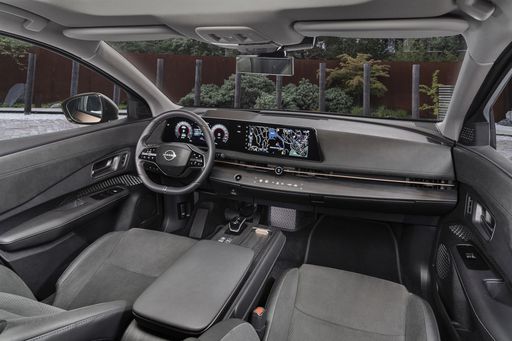 @ Nissan
@ Nissan

|

|
|
|
|
Costs and Consumption |
|
|---|---|
|
Price
32400 - 56100 £
|
Price
37300 - 54800 £
|
|
Consumption L/100km
1.4 - 8.2 L
|
Consumption L/100km
-
|
|
Consumption kWh/100km
-
|
Consumption kWh/100km
17.7 - 24.5 kWh
|
|
Electric Range
69 km
|
Electric Range
402 - 531 km
|
|
Battery Capacity
11.50 kWh
|
Battery Capacity
63 - 87 kWh
|
|
co2
33 - 185 g/km
|
co2
0 g/km
|
|
Fuel tank capacity
56 - 67 L
|
Fuel tank capacity
-
|
Dimensions and Body |
|
|---|---|
|
Body Type
SUV
|
Body Type
SUV
|
|
Seats
5
|
Seats
5
|
|
Doors
5
|
Doors
5
|
|
Curb weight
1783 - 2173 kg
|
Curb weight
1980 - 2259 kg
|
|
Trunk capacity
494 L
|
Trunk capacity
415 - 468 L
|
|
Length
4395 mm
|
Length
4595 mm
|
|
Width
1984 mm
|
Width
1850 mm
|
|
Height
1648 mm
|
Height
1650 mm
|
|
Max trunk capacity
1170 L
|
Max trunk capacity
1280 - 1350 L
|
|
Payload
497 - 554 kg
|
Payload
396 - 420 kg
|
Engine and Performance |
|
|---|---|
|
Engine Type
Plugin Hybrid, Diesel MHEV, Petrol MHEV
|
Engine Type
Electric
|
|
Transmission
Automatic
|
Transmission
Automatic
|
|
Transmission Detail
Automatic Gearbox
|
Transmission Detail
Reduction Gearbox
|
|
Drive Type
All-Wheel Drive, Front-Wheel Drive
|
Drive Type
Front-Wheel Drive, All-Wheel Drive
|
|
Power HP
160 - 269 HP
|
Power HP
218 - 435 HP
|
|
Acceleration 0-100km/h
7.3 - 10.5 s
|
Acceleration 0-100km/h
5 - 7.6 s
|
|
Max Speed
190 - 211 km/h
|
Max Speed
160 - 200 km/h
|
|
Torque
260 - 540 Nm
|
Torque
300 - 600 Nm
|
|
Number of Cylinders
3 - 4
|
Number of Cylinders
-
|
|
Power kW
118 - 198 kW
|
Power kW
160 - 320 kW
|
|
Engine capacity
1498 - 1998 cm3
|
Engine capacity
-
|
General |
|
|---|---|
|
Model Year
2024
|
Model Year
2022 - 2025
|
|
CO2 Efficiency Class
B, G
|
CO2 Efficiency Class
A
|
|
Brand
Jaguar
|
Brand
Nissan
|
What drive types are available for the Jaguar E-Pace?
The Jaguar E-Pace is offered with All-Wheel Drive or Front-Wheel Drive.
The prices and data displayed are estimates based on German list prices and may vary by country. This information is not legally binding.
